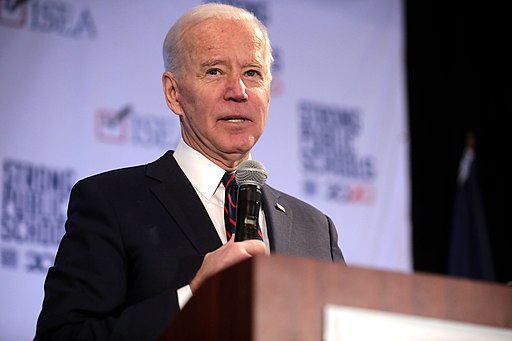As President Biden flies to Georgia to give a speech backing a filibuster “carve-out” for voting rights legislation, it’s fair to wonder what (if any) impact such public pressure will really have on filibuster-committed Senators like Manchin and Sinema. Will the gravity of his words, or the gravity of the moment, lead to changes of heart for the recalcitrant Senators? Or is Biden’s speech—staged in Georgia, to highlight 2021’s string of red-state legislative restrictions on voting against the backdrop of a Biden visit to Martin Luther King’s grave—only so much political theater?
538’s Nate Silver seems to think it’s political theater. His response to Rick Hasen’s Tweet asking what Biden’s endgame is in “ratcheting up expectations that voting rights will pass when the indications are that it will not” read as follows: “The generous read, I guess,” Silver Tweeted, “is that everybody knows voting rights legislation is unlikely to pass, so they’re all pantomiming and setting up someone else to take the blame.”
In support of the theory that it’s all just pantomime, unfortunately, is the way Manchin himself doubled down on his reluctance to reform the filibuster, only hours ahead of Biden’s speech. This after Manchin notoriously added insult to injury by not only tanking Biden’s Build Back Better legislation but making his announcement on Fox News. And, as Senate Republicans continue their staunch opposition to any voting reforms whatsoever, that would seem to strike dead on arrival Manchin’s laudable (but also deeply, deeply naive) hopes of achieving voting reform through compromise.
In fact, Senator Mitch McConnell seems not to really understand what Democracy even is. McConnell Tweeted this threat about the filibuster’s rules on the morning of Biden’s speech: “If Democrats blow up Senate rules, millions of Americans will cease to have a voice in the Senate. Entire states would be shut out. Top Dems have floated breaking the rules for years now. This isn’t about new voting laws. It’s about silencing voters who inconvenience Democrats,” apparently missing the irony that if more voters were enfranchised, and happened to vote for Democrats, it wouldn’t be “silencing” Republican voters, it would be “Democracy.”
Meanwhile, passing sweeping voting reforms remains one of the keys, (if not the key), to salvaging American democracy. As the Brennan Center for Justice points out in its memo on the John R. Lewis Voting Rights Advancement Act, “The John Lewis Voting Rights Act would modernize and revitalize the VRA [the seminal 1965 Voting Rights Act] by strengthening legal protections against discriminatory voting policies.
First, the bill restores what the Supreme Court struck down in Shelby County by creating a new formula to determine which jurisdictions with a history of voting discrimination are subject to preclearance, and it adds practice-based coverage, making certain types of discriminatory voting changes subject to preclearance. The bill also restores Section 2 in the wake of Brnovich to ensure that voters have the full ability to challenge voting discrimination in court.” But the chances of its passing are slim, and, pantomime or not, Biden pushed ahead with his remarks Tuesday afternoon, saying “As an institutionalist, I believe that the threat to our democracy is so grave that we must find a way to pass these voting rights bills. Let the majority prevail, and if that bare minimum is blocked, we have no option but to change the Senate rules, including getting rid of the filibuster for this.”

